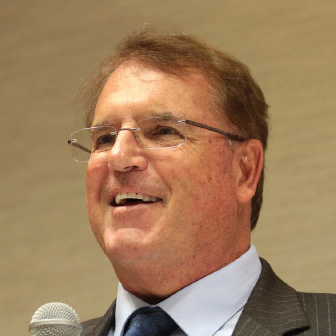After 22-year-old Samuel Reyes was shot and killed while delivering a Domino’s pizza in a government housing project in San Francisco, Domino’s suspended pizza deliveries in the highest crime areas of many cities. The company also developed computer software that allows its franchisees to flag addresses that are unsafe (a yellow flag means curbside delivery only; green flag means go ahead; red flag means do not enter).
One would think that such an expression of concern for employee safety would earn Domino’s one of the U.S. Department of Labor’s corporate social responsibility awards. No such luck. Domino’s behavior has infuriated liberal political activists and has led to a new civil rights campaign-against so-called service redlining.
Because some of the most crime-ridden sections of San Francisco are in predominantly black government housing projects, the San Francisco Board of Supervisors recently decided to make it illegal for Domino’s (or any other fast-food deliverer) to refuse to deliver in areas the company believes would put its employees’ lives in danger. The new law is the basis of a civil suit by aggrieved pizza consumers who apparently believe they have a constitutional right to pizza delivery.
The deep irony of San Francisco’s new service redlining law is that in the name of civil rights it imposes forced labor on Domino’s employees. The law also makes a mockery of private property and freedom of association, as the city’s politicians seek to coerce business owners into associating with violent criminals and putting their employees’ lives—and their business property—at risk.
The very idea that pizza delivery is a civil rights issue is absurd. Because the fast-food business is so fiercely competitive and profit margins so low, any business that ignored a large customer base because of racism would not long survive. Domino’s did not become the hugely successful company that it is by refusing to sell its pizzas to blacks. Such discrimination would create enormous profit opportunities for its competitors and drive it from the market. If there are large, unrealized profit opportunities in the pizza delivery business in some sections of San Francisco, one wonders why members of the San Francisco Board of Supervisors do not invest in pizza delivery franchises there themselves. According to their own logic, millions of dollars in profits are just sitting there, waiting for racially enlightened business owners to pick them up.
While politicians in San Francisco and elsewhere argue over how best to regulate service redlining, the free market is quietly solving the problems they are concerned about. A new business in Birmingham, Alabama, is the model. Home Boys Catering and Delivery hires ex-gang members to deliver pizzas and other food items to high-crime areas of the city. The business adds a $2.50 service charge (or risk premium) to each delivery, and it has been so successful that it is expanding into other cities.
This particular form of price discrimination is rational and efficient, but political demagogues hreaten its existence because of their economic ignorance and political opportunism. Many other businesses, such as grocery stores, charge what might be called a crime premium for operating in higher-crime areas; otherwise many of these businesses would not operate there at all. For example, grocery prices are often slightly higher in higher-crime areas of a city because the stores there incur higher costs due to a higher incidence of shoplifting, break-ins, and robberies. For decades, politicians who purportedly champion the poor have condemned this type of discrimination and in some cases have imposed price control laws which prohibit it.
But price controls that prohibit stores from passing on at least part of these costs to consumers will reduce—or eliminate—profit margins at those stores, causing many of them to shut down, as has in fact occurred throughout the United States. The residents of these urban areas are then left with fewer places for purchasing groceries and may very well end up paying higher prices.
The fact that the free market is quickly and easily solving the problem of food delivery in high-crime areas, thanks to businesses like Home Boys Catering and Delivery, will likely be ignored by most self-appointed civil rights leaders for the same reason that most politicians always ignore the free market in general: Voluntary solutions leave no room for politicians to advance their careers by shaking down the businesses they threaten with regulation for campaign contributions and engaging in media grandstanding. In the name of civil rights, San Francisco’s politicians would apparently rather enforce a form of involuntary servitude than sacrifice these career opportunities.
If the San Francisco Board of Supervisors wants to solve the problem of unequal service delivery in high-crime areas, it should create a better business climate in the city through deregulation-especially of food vendors and other small businesses that are plagued by occupational licensing regulation; tax cuts to spur economic growth; and better crime control. It needs to stand back and get out of the way of entrepreneurs like Home Boys Catering and Delivery owner Darek Marcel Eaves. Mr. Eaves provides a valuable service to his customers and performs a public service to his community by employing troubled young men and women and teaching them how to develop a work ethic and to run a successful small business. America’s cities need more entrepreneurs like Mr. Eaves, not more laws, regulations, and mandates on business owners.
Life, Liberty, and Pizza Delivery
Also published in The Freeman
This article is reprinted with permission from The Freeman, May 1997. © Copyright 1997, the Foundation for Economic Education.
Thomas J. DiLorenzo is a Research Fellow at the Independent Institute, and president of the Mises Institute
Business and EntrepreneurshipCrime, Criminal Justice, and PrisonsEconomic History and DevelopmentEconomyFree Market EconomicsGovernment and PoliticsLaw and LibertyThe Nanny State
Comments
Before posting, please read our Comment Policy.








